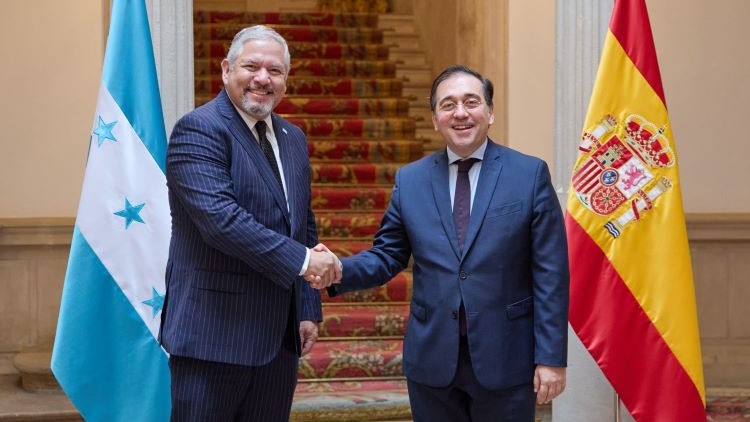Eduardo González
On June 13, the Agreement between Spain and Honduras will enter into force for the regulation of the conditions of entry and permanence of aid workers, volunteers and scholarship holders of non-Honduran nationality linked to the Spanish Cooperation and their families.
The agreement was signed ad referendum in Madrid, on February 21, 2023, by the Minister of Foreign Affairs, José Manuel Albares, and his Honduran counterpart, Eduardo Enrique Reina, on the occasion of the working visit to Spain of the Honduran president. , Xiomara Castro.
On that occasion, the President of the Government, Pedro Sánchez, and President Castro celebrated the agreement to improve the immigration situation of Spanish aid workers in Honduras, an agreement that, as Minister Albares declared that same day, “will allow for improving the conditions of our collaborators in the country” and advance “in their protection.”
The agreement, as published this week in the Official State Gazette (BOE), is intended to regulate the entry and stay of cooperating personnel and their families. “It is intended by this means to guarantee legal immigration security relating to your entry and stay in the country, as well as the necessary agility of the respective procedures in accordance with the rules of economy, speed and efficiency, so as to allow the execution in time and form of cooperation,” he added.
Cooperators holding official or diplomatic passports and the so-called “expert-coordinators” and “expert-cooperators” sent by the Government of Spain, regulated in the Basic Agreement on Scientific and Technical Cooperation between Spain, are excluded from the scope of application of the agreement. and Honduras and the Protocol annexed thereto, on the Statute of Experts in Technical Cooperation, made on December 8, 1981.
With regard to Spanish institutions, the agreement only affects the powers of the Ministry of Foreign Affairs and the Spanish Agency for International Development Cooperation (AECID).
AECID maintains a continuous presence in Honduras through its Spanish Cooperation Office. Thanks to the eight cooperation agreements signed by the two countries since 1981, numerous projects have been executed in sectors such as education, health, heritage for development, democratic governance, rural development, and culture for development.
The current Master Plan of Spanish Cooperation considers Honduras as a Middle Income Association Country. In addition, the Country Association Framework 2020-2023 is aligned with the 2030 Agenda in areas such as social well-being and local economic growth, the eradication of violence against women, girls and groups discriminated against due to their sexual identity, and institutional strengthening and democratic governance.







